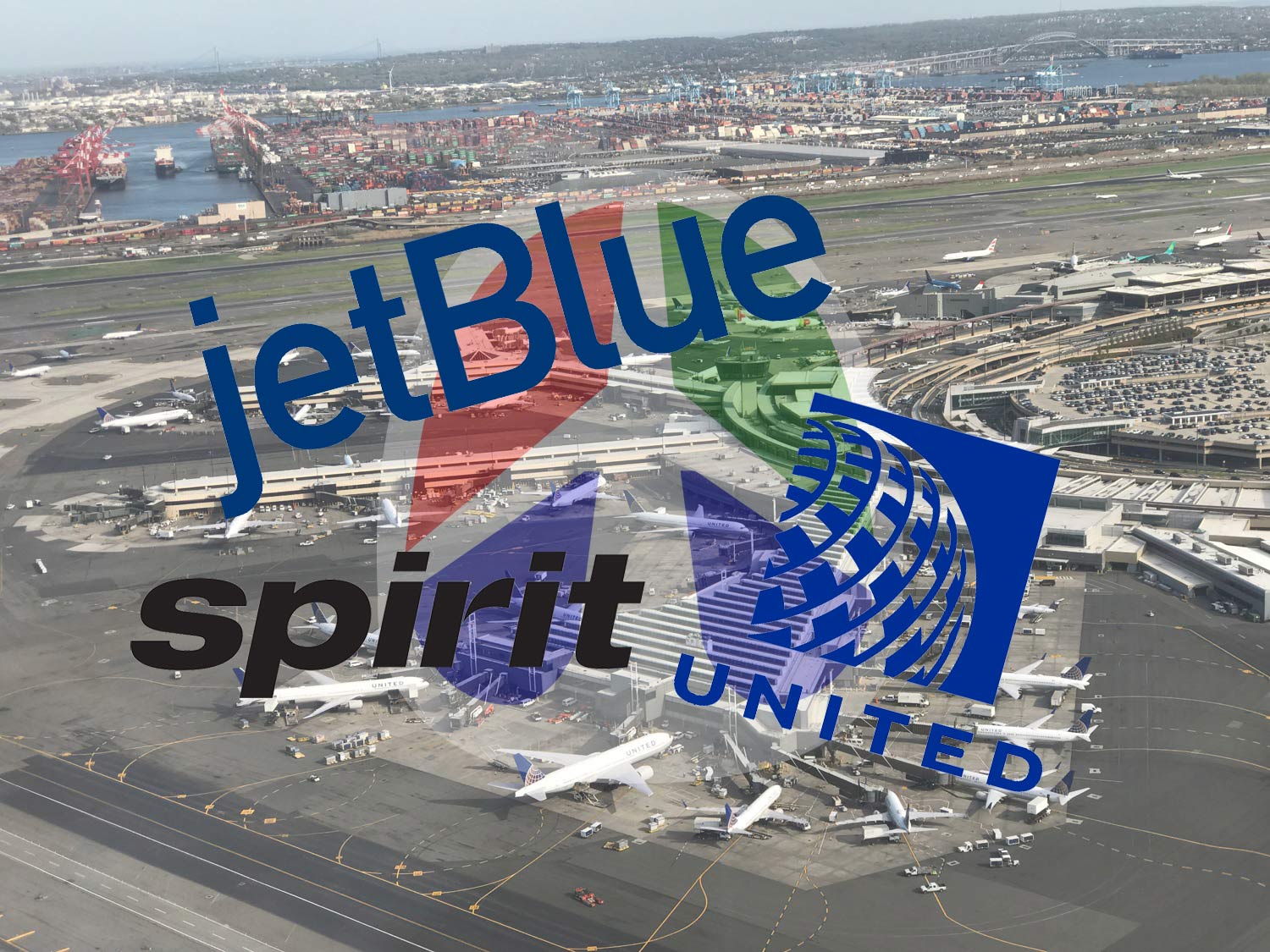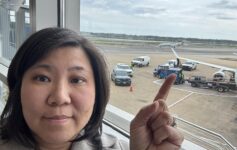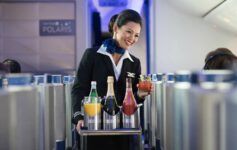
United Airlines has asked the U.S. Federal Aviation Administration (FAA) to intervene in a growing dispute with JetBlue Airways and Spirit Airlines over the voluntary limit of flights at Newark Liberty International Airport.
United Airlines Attacks JetBlue + Spirit Over Newark Airport Expansion, Asks FAA To Intervene
Newark is congested, but not slot-controlled. Classified as a “Level 2” airport, airlines are asked to voluntarily limit schedules in coordination with the FAA, but are not bound to do so. While JetBlue and Spirit Airlines have ramped up flights, United says it is operating the same peak-hour flights this summer that it operated at Newark over the past five years. It warns the actions of JetBlue and Spirit are creating congestion which leads to flights delays for all passengers. Now it wants the FAA to step in, even introducing slot controls if necessary. A letter from Executive Vice President Andrew Nocella to the FAA warns:
The traveling public, FAA air traffic controllers, and airport employees at EWR bear the
brunt of the effects of JetBlue’s and Spirit’s operations above the capacity cap of 79 movements per peak-hour. United implores the Secretary to take more aggressive steps and clearly communicate those steps to protect EWR passengers from avoidable delays and preserve the optimal functionality of the airport.
Spirt and JetBlue have a different take. They say United is simply trying to squeeze out competition from its hub, to the detriment of consumers. In its own letter to the FAA, Spirit alleged that United operates with “reckless inefficiency” at Newark. JetBlue has even charged that United “appears to have specifically taken steps to worsen operations at EWR” in a ruse to convince the FAA to re-introduce slot restrictions.
That may be a stretch, but the objectives are clear: JetBlue and Spirit wish to keep the door open for future expansion while United seeks to protect its strong position at Newark.
In a related manner, Spirit Airlines sued the FAA after it retired the flight authorizations of Southwest Airlines rather than re-assign them when Southwest pulled out of Newark in 2019.
The DC Circuit Court of Appeals sided with Spirit Airlines, ruling:
“We conclude the FAA’s decision was final because it prevented Spirit from operating as many peak-period flights as it would otherwise have done in the Summer 2020 scheduling season. We also conclude the FAA’s decision was arbitrary and capricious because the agency disregarded warnings about the effect of its decision on competition at Newark. We therefore grant Spirit’s petition for review and vacate the FAA’s decision to retire the peak-period flight authorizations previously held by Southwest.”
Spirit says the decision validates its decision to grow in Newark while United says the decision is narrow and it does not allow Spirit to grow carte blanche.
Now, the FAA must consider the positions of United, Spirit, and JetBlue and decide if it will intervene to block flights in order to reduce congestion.
CONCLUSION
This is a complex issue. But at the root is a competitive game of chess between United and anyone which tries to challenge it at Newark. While Newark is right that the addition of flights by Spirit beyond the recommended cap has led to congestion, it conveniently fails to mention that Spirit also helps to hold fares in check. United is now asking the FAA to choose efficiency and punctuality over competition, but it isn’t clear that will be a winning formula for consumers.
Get Daily Updates
Join our mailing list for a daily summary of posts! We never sell your info.




No one who controls over 50% of an airport should have say in what others do. THAT is unfair competition.
Would be karmically beautiful if the FAA agreed that it was too congested, and then ordered UNITED to scale back operations accordingly.
Even though EWR is not currently slot controlled United does have slots for every flight it operates out of EWR. This is why Spirit and JetBlue engaged in such a bitter battle to get their hands on Southwest’s old slots. United is playing by the rules that the FAA put in place when they switched EWR from slot controlled to a level 2 airport. All United is asking is that the FAA do their job and enforce the rules the FAA already has in place.
I don’t think United is trying so much to limit competition at EWR what United is asking for is for the FAA to hold airlines to 79 aircraft movements during peak hours. There are a lot of open aircraft movement slots available during non-peak hours however as we all know airlines and passengers love traveling during peak hours. If airlines (United included) balanced out their schedules more to take advantage of movements available during non peak hours that would go a long way to alleviating some of the congestion EWR experiences. For now Spirit and JetBlue when they add new flights out of EWR they are adding them during peak hours which pushes the airport over the 79 aircraft movements for the hour.
United: Mom, they’re offering actual competition for customers. Make them stop.
Poor take that demonstrates zero understanding of the actual situation.
maybe United energy is better spent on making those flying out of IAD NOT feel like they are flying Spirit? How are they not ashamed of that hub.
Bad look for UA. Guess they think they are special since they are helping Biden cover up his F’up on formula.
United’s Terminal C is a madhouse. THEY should be scaled back. Their traffic jams of cars arriving flows back to Terminal B.in a disrupful way.
Awful.
That’s why you don’t put a fortress hub somewhere people actually want to go. Nobody wants to go to DFW, ATL, CLT, DTW so they work great.
Are you being serious? Every city you cite is big enough for an NFL franchise. Like it or not, Atlanta and Dallas are huge cities, Do you perhaps mean that you don’t like big cities?
Christian, no offense, assuming you live in one of these cities, but they aren’t very appealing cities. I think Jerry has a good point here.
Christian that is an odd comment to make as many NFL teams are not in mega urban areas. Vegas, Kansas City, Green Bay, Jacksonville all have an NFL team, but they aren’t major population centers, but have an NFL team. Most people would be happy no being forced to travel through Dallas or Atlanta. They are only mega hubs because that is where American and Delta are headquartered. If those airlines weren’t there, the amount of people going there would be cut in half.
Interesting take on things. No, I do not and never have lived in any of the listed cities. I don’t even like some of them but apparently millions of people feel that they’re worth living in. A fortress hub works an awful lot better if you have millions of residents as a captive audience. As one example, the O/D traffic in an airport like ATL is enormous.
My point is places like New York, San Francisco, and Los Angeles are places that have global appeal from a business and tourism standpoint. There is enough demand to these places that the airport can hit capacity on O/D traffic alone. Dallas and Atlanta (and CLT, MSP, DTW) are fine enough, but the reason these airports are so big is because they are connecting hubs. Virtually zero international travelers visit these cities for leisure, and still very few domestically. The only real O/D traffic is from the local area, and domestic business.
To be fair to these cities, the same thing (nobody wants to go there) could be said about FRA, DXB, DOH, and AUH.
The backbone of this argument is that people really want to go to Newark?
Just making sure I understand.
Kirby continues to cozy up to the Biden Administration. Maybe sleepy Joe will put some heat on the FAA…..
The issue with EWR is not the airlines — it’s the fact that it’s only got 2 working runways. Considering that Newark is in the top 10 busiest airports in the US, it really needs another runway added — or at least getting 11-29 back up and running.
I don’t know why PANY/NJ didn’t work on 11-29 during the pandemic, but once Terminal A gets finished, EWR is only going to get worse….
For peak hours there should be slots and to help with who should get those slots, one factor (imo) should be size of the plane. This should be a rule for all airports in the tri-state area. We see all airlines playing games with small airplanes to save slots they are not using.
Seems like the FAA and United are besties so wonder what will happen here.
Very curious to see if the FAA gives the Cape Town route to United instead of Delta.
Amazing you guys think you know this biz. How much has JB and Spirit invested in EWR? And your actually saying people are chosing to fly spirit or united?!?! JetBlue yes…but come on. JB can go back to JFK. That’s they’re fortress hub. They’re slowly bleeding cash. Ask yourself why they wanted to buy spirit. That can’t even retain pilots.
JetBlue is a joke of an airline!
Boo hoo United. Are you afraid of the Jet Blue boogie man? If you can’t play nice Mommy is going to put you in time out.
Scarce slots should be allocated by auction in order to meet dual aims of encouraging competion while limiting congestion. Let the market decide !
A lot of interesting comments on all sides here. And no shortage of bickering. Here’s my take since EWR is my home airport
1. EWR is constrained in space. They is simply no space to add another main runway unless you reroute I-95 and bulldoze IKEA. Fixing 11-29 might help marginally but it’s still a short, crossing runway so it’s not going to meaningfully add to the # of movements. So you can’t grow your way out of the current problem.
2. As a United FF, and continental before that, my opinion is the united product has not grown in quality since the merger. In many ways its worse now than it was 10 or 20 years ago in terms of seat & bathroom size, not to mention terminal congestion. 3. At the same time, prices at Newark are typically the least competitive of the 3 NYC airports. I’ve never seen a convincing argument that shows me that’s not due to United’s near monopoly at EWR.
4. I’ve flown Spirit from EWR enough times to know that I have a lot of bad outcomes with them too. Particularly in terms of flight delays and cancelations.
5. I am also of the mind that the “Spirit effect” results in lower prices at airports where they have competitive slots, but it also results in the degradation of quality to the traditional carriers like united (see basic economy, charge for bags, charge for seat assignments, etc. ). Perhaps the only silver lining is that I don’t think the quality can get cut much further and there might ironically be a market for a better service product.
6. I personally think united is very happy that they almost control EWR as a monopoly on most routes, but can fly a product of degraded quality due to competition on a few select routes. And I think we travelers pay the price.
Perhaps it’s been posted elsewhere, but I’d enjoy if this article could cite the number of aircraft movements at EWR than united controls. Personally, I think that there should be a sliding scale on cost for an airline going over 40 or 50% of slots (either total, or theoretical) and during peak hours. If you want to go from 40 to 80% of slots, or to the point where you start exhibiting monpolistic control over pricing, you should have to pay up for the privilege.
I would like to see more competition at EWR.